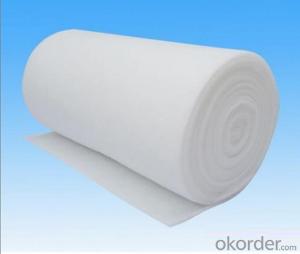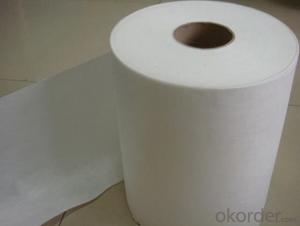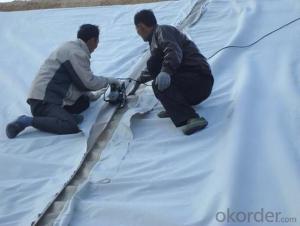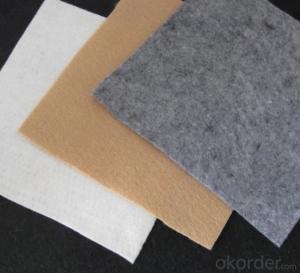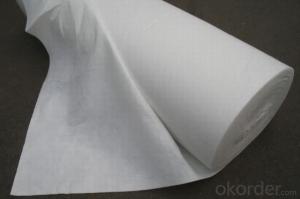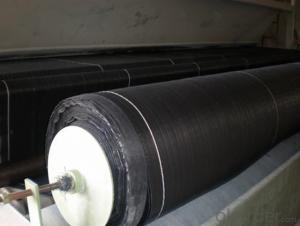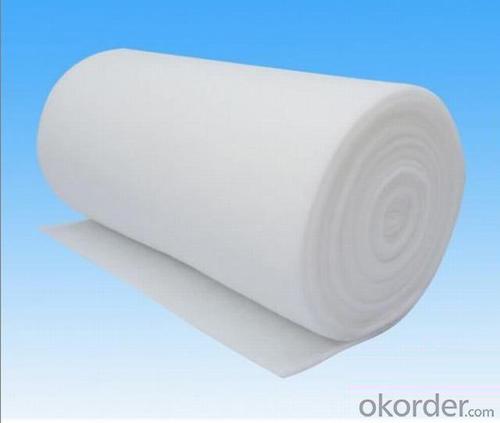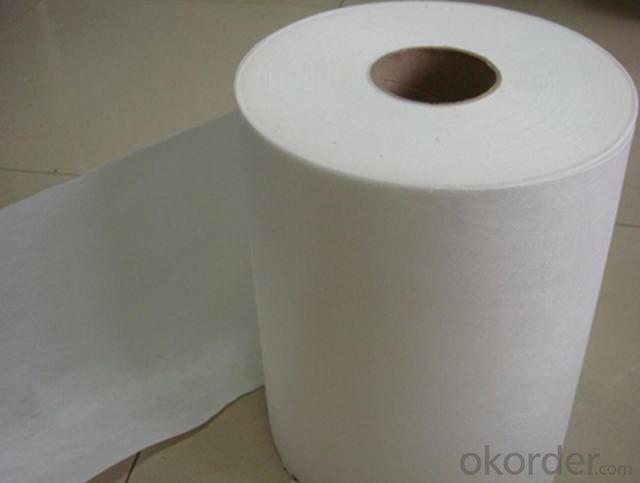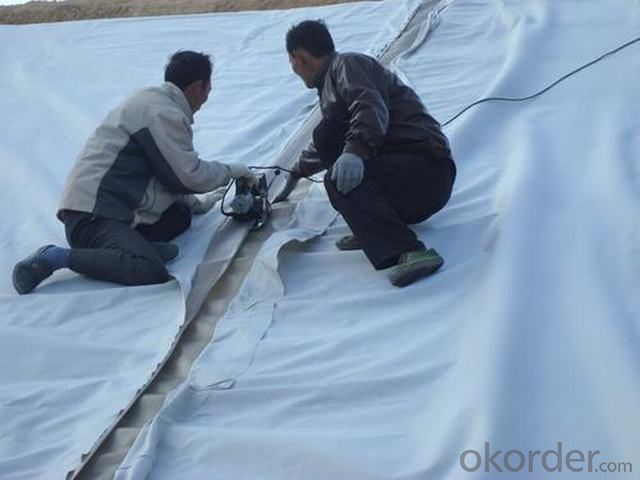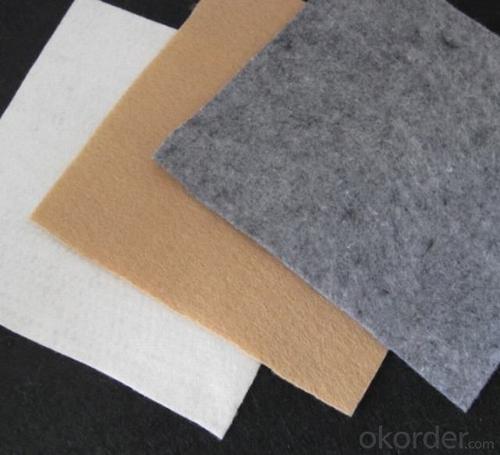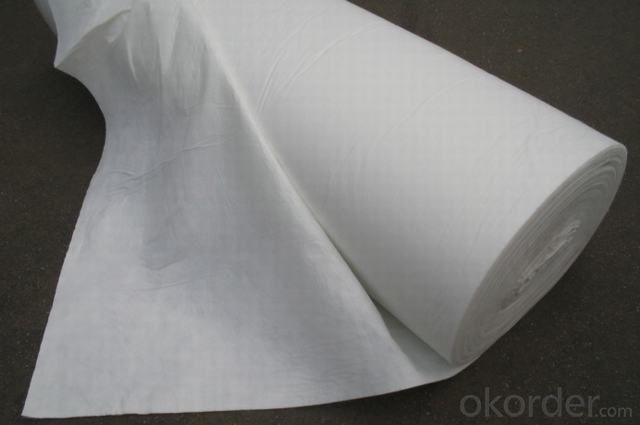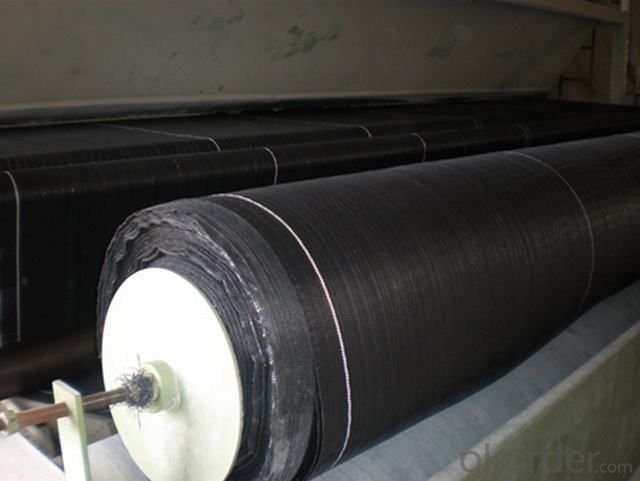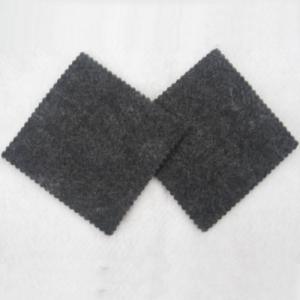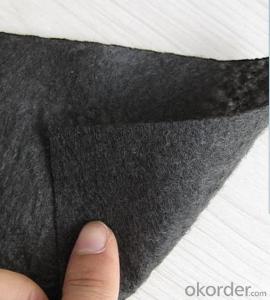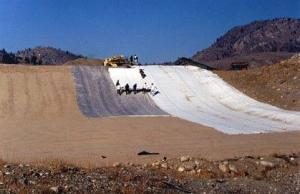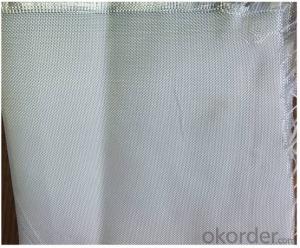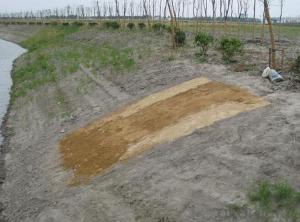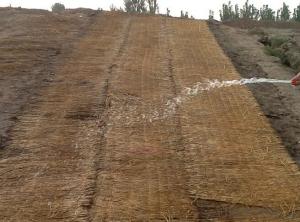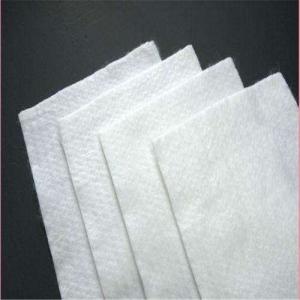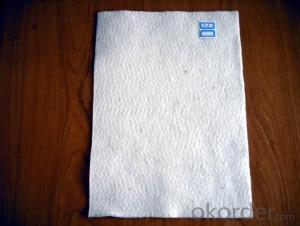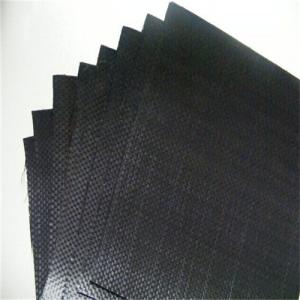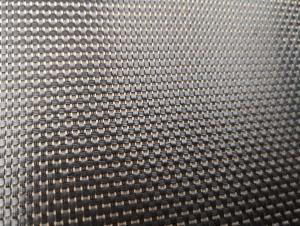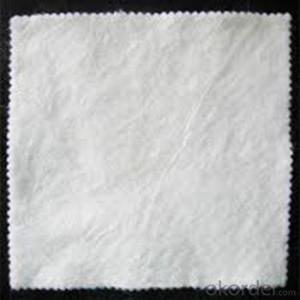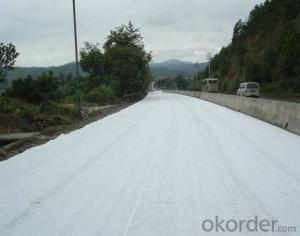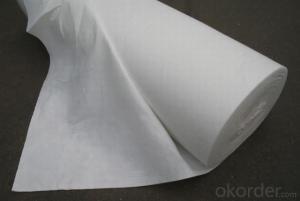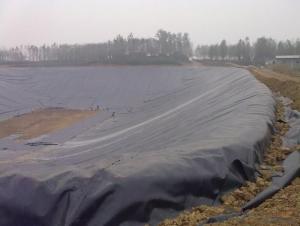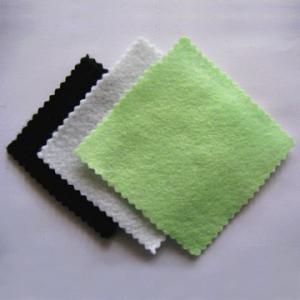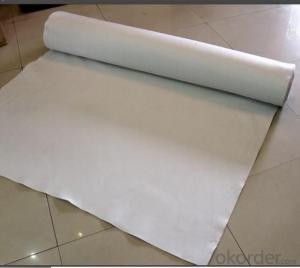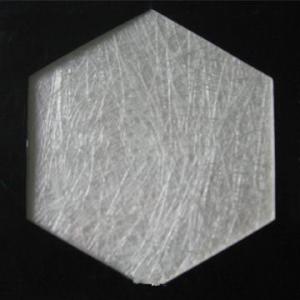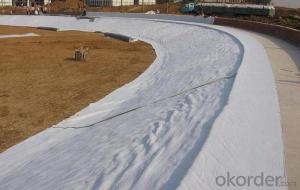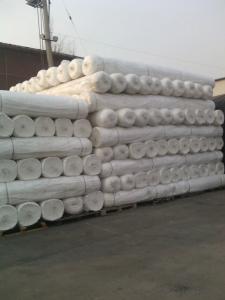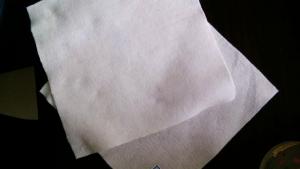Geotextile One 4 Woven Geotextile for Railway and Highway Construction
- Loading Port:
- Qingdao
- Payment Terms:
- TT OR LC
- Min Order Qty:
- 20000 m²
- Supply Capability:
- 1500000 m²/month
OKorder Service Pledge
OKorder Financial Service
You Might Also Like
Instruction of Woven Geotextile for Railway and Highway Construction:
A woven geotextiles is an economical solution for any civil engineering applications. It separates, stabilizes, and reinforces soils and allos allows for filtration. Woven geotextiles are manufactured by extruding polypropylene film and then slitting the film into individual yarns which are then woven to form the geotextiles.
Functions of Woven Geotextile for Railway and Highway Construction:
Ground stabilization
Drainage
Erosion control and re-vegetation
Revetment
Ground reinforcement
Asphalt underlayment
Road reinforcement
Features of Woven Geotextile for Railway and Highway Construction:
-Woven geotextile made on circle weave machine
-Materials: polypropylene and other imported new materials
-Weight per square meter: 80-700g/m²
-Width: max. 6m
-Perfect flexibility and against ultraviolet radiation and aging.
It can be widely used in areas of railways, highways, sport fields, earthwork projects, tunnels, coal mines, walls and slopes, environmental protection, and so on.
Applications of Woven Geotextile for Railway and Highway Construction:
-Construction of roads and other trafficked areas (excluding railways and asphalt inclusion)
-Construction of railways,
-Earthworks, foundations and retaining structures,
-Use in drainage systems,
-Erosion control works (coastal protection, bank revetments),
-Construction of reservoirs and dams,
-Construction of canals,
-Construction of tunnels and underground structures,
-Use in solid waste disposals,
10-Use in liquid waste containment projects,
Data Sheet of Woven Geotextile for Railway and Highway Construction:
Item | Testing Method | Unit | ||
Grad Tensile Strength | ASTM-D 4632 | N | 890 | 1405 |
Grab Elongation | ASTM-D 4632 | % | ≤20 | ≤20 |
Puncture Strength | ASTM-D 4833 | N | 400 | 667 |
CBR Puncture | ASTM-D 6241 | N | 3200 | 4800 |
Mullen Burst | ASTM-D 3786 | kPA | 2578 | 4137 |
Trapezoidal Tear | ASTM-D 4533 | N | 500 | 750 |
Apparent Opening Size | ASTM-D 4751 | mm | 0.425 | 0.425 |
Permittivity | ASTM-D 4491 | Sec-1 | 0.05 | 0.05 |
Water Flow Rate | ASTM-D 4491 | 1/m/m2 | 163 | 163 |
UV Resistance | ASTM-D 4355 | % 500hrs | 70 | 70 |
Roll Width | m | 6 | 6 | |
Roll Length | m | 100 | 100 | |
Mass | GSM | 200 |
300
|
- Q: Geotextile 300g * 600mm * 300g is how is it?
- No you say 300g * 600mm * 300g this specification of the product, according to reason should be 300g * 0.6mm * 300g product 300g * 0.6mm * 300g product is a composite geomembrane specifications, also known as two cloth a film , Composite geotextile. That is, both sides of the upper and lower sides of a layer of 300g geotextile, the middle folder 0.6mm thickness of the plastic film. Composite geomembrane is to play the role of anti-seepage, generally used for water conservancy project seepage, civil engineering seepage and so on. The geotextile is from the water, reinforcement, protection, and can not achieve the role of anti-seepage. 300g * 0.6mm * 300g composite geomembrane price is generally between 11.5-13 yuan. You can do the next reference.
- Q: Geotextile, geomembrane to go to the laboratory test
- 1. Geotextile, geomembrane whether it is necessary to go to third-party laboratory testing is mainly to see the construction side or supervision unit requirements, if the construction side or the supervision unit clearly requires the authority of the third-party laboratory for testing, then you need to go Laboratory testing. 2. If there is no clear requirements, in general geotextile, geomembrane factory manufacturers will have a qualified factory self-test report, substandard products will not be factory, the other construction side will generally have their own experiments Room on the geotextile, geomembrane for testing, manufacturers and construction side of the test results are qualified, no special requirements are not going to third-party laboratory testing, and only one of the two sides of the test results have objections Go to a third party laboratory for testing.
- Q: How do geotextiles help with vegetation establishment in landscaping projects?
- Geotextiles help with vegetation establishment in landscaping projects by providing a stable and favorable environment for plants to thrive. They prevent soil erosion, retain moisture, and control weed growth, which ultimately promotes healthy root development and successful establishment of vegetation.
- Q: Are geotextiles suitable for use in road shoulder stabilization?
- Yes, geotextiles are suitable for use in road shoulder stabilization. Geotextiles can effectively prevent erosion, improve soil stability, and provide reinforcement to road shoulders by distributing load and reducing lateral movement. They are also permeable, allowing for drainage and preventing water accumulation, which helps maintain the integrity of the road shoulder.
- Q: How do geotextiles affect water quality?
- Geotextiles can have both positive and negative impacts on water quality. On the positive side, geotextiles can act as a filtration system by preventing sediment and other pollutants from entering water bodies. They can also promote water infiltration and reduce erosion, thus helping to maintain water quality. However, if not properly installed or maintained, geotextiles can become clogged with sediment or create barriers that disrupt natural water flow, leading to potential water quality issues. Therefore, it is crucial to consider the specific design, installation, and maintenance requirements of geotextiles to ensure their positive impact on water quality.
- Q: What is the size of the filament geotextile? What are the characteristics of the application?
- What is the size of the filament geotextile? What are the characteristics of the application?
- Q: Are geotextiles suitable for use in groundwater remediation systems?
- Yes, geotextiles are suitable for use in groundwater remediation systems. Geotextiles can act as a barrier to prevent the migration of contaminants and provide filtration for groundwater. They can also enhance the effectiveness of other remediation methods by improving the distribution and retention of remedial agents. Additionally, geotextiles are durable, cost-effective, and environmentally friendly, making them a suitable choice for groundwater remediation systems.
- Q: How do geotextiles help with erosion control in coastal dunes?
- Geotextiles help with erosion control in coastal dunes by stabilizing the soil and preventing it from being washed away by wind or water.
- Q: What kind of geotextile is used to repair the road?
- Call one three seven to understand three one two one two to ensure that the quality of price satisfaction
- Q: Mainly how to filter layer construction, cutting for the weak weathering rock
- The walls behind the sandbags ah, but in most cases are mechanical backfill, and then the top surface of a layer of sandbags and composite drainage network mean
Send your message to us
Geotextile One 4 Woven Geotextile for Railway and Highway Construction
- Loading Port:
- Qingdao
- Payment Terms:
- TT OR LC
- Min Order Qty:
- 20000 m²
- Supply Capability:
- 1500000 m²/month
OKorder Service Pledge
OKorder Financial Service
Similar products
Hot products
Hot Searches
Related keywords
